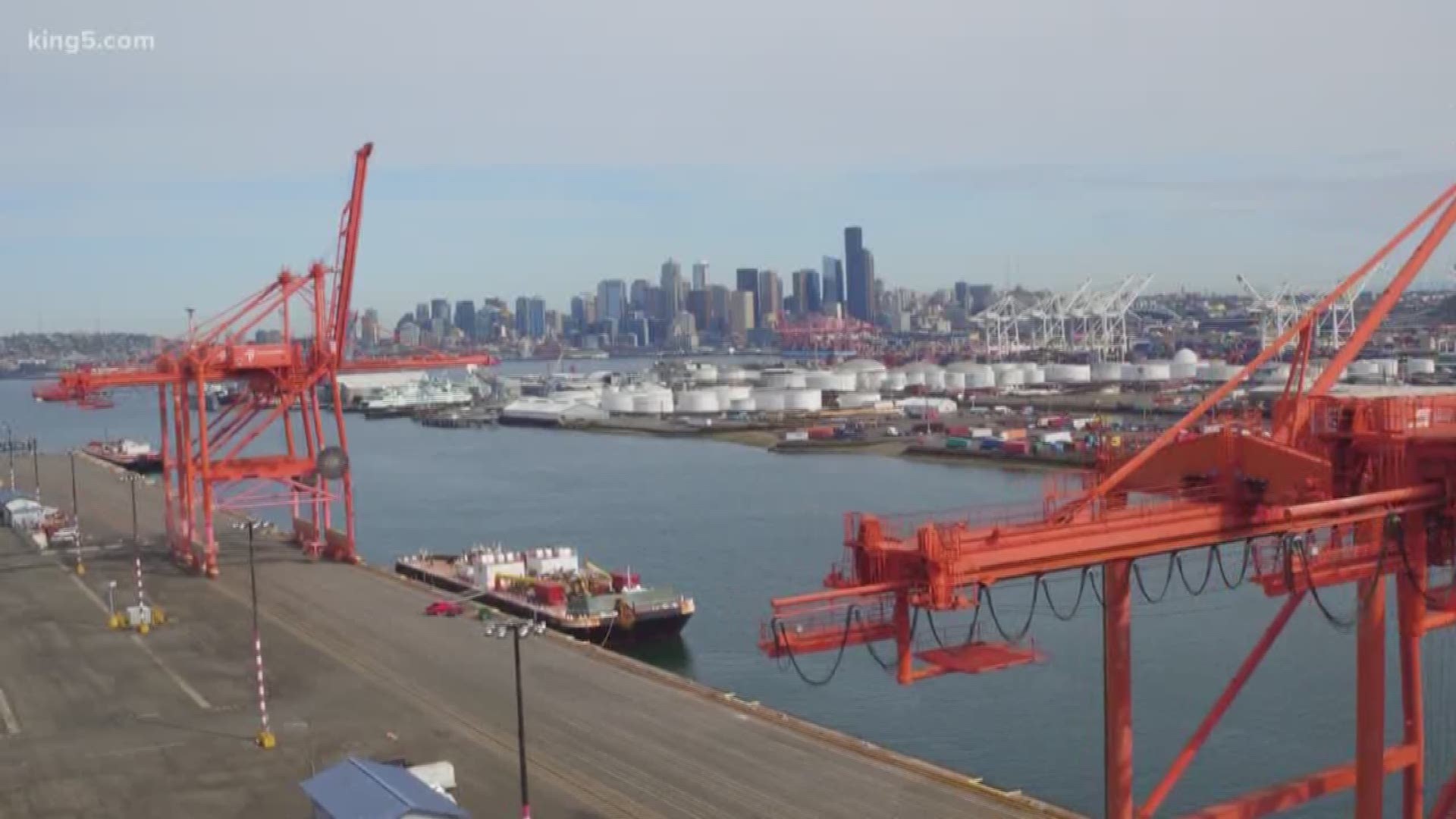It looked like a normal day near the Agate Pass bridge in Kitsap County. The oyster farms were buzzing, and two boats were pulling in another harvest of geoducks.
But back on the beach, Tony Forsman said all is not normal.
“I think the trade war is catching up to the industry,” said the Suquamish Seafoods General Manager. "With the trade issues going on, and the tariffs, the Chinese economy has slowed. (Seafood is) not in demand right now, as it is. This is certainly hurting our customer sale, and our bottom line."
Forsman said his office employs less than 50 people and exports 420,000 pounds of geoducks per year. Primarily, the product goes to China, where it is considered a high-end, luxury item.
But the tariffs and trade policy have caused Chinese buyers to look elsewhere, he said.
“We’re in competition with Canada who also exports a lot of Geoduck to China, so it’s all a market driven thing.” He says, bluntly, sales are down 20-25% over this time last year.
“I'm very, very concerned,” said former Commerce Secretary and U.S. Ambassador to China Gary Locke. "Using tariffs is the wrong way to solve the problem.”
Locke, also the former governor of Washington, said "aquaculture" will take a hit if the tariffs continue for an extended period.
“It will impact the U.S. economy, it will impact the Chinese economy, and then will impact the global economy."
Others are split on the impacts.
Mark Powers of the Northwest Horticultural Council said, “We are just starting our export season and shipments to China should begin soon. The tariff situation is the same as it was in early July of last year, so we anticipate some sales, but not the level that we would like to have or need. It is hard to speculate right now. We will have a better sense of the situation in a couple weeks when we have a larger volume of fruit being harvested."
The Port of Seattle said there are signs of concern on the waterfront.
“Exports to China through our seaport gateways were down 32% in 2018, compared to 2017. And down 21% so far in 2019 (though end of March), compared to 2018.”
Port spokesman Peter McGraw said it is being driven by impacts on specific commodities, such as soy, seafood, dairy and apples. There has been a 38 percent decline in cherry exports through the airport, McGraw said.
However, he also said that overall trade business with China continues to grow, likely because the U.S. economy is compensating for increased costs and uncertainty from the trade war, and importers have been doing as much trading as possible to get ahead of tariff increases.
“We want it to end,” says Forsman. “We see some tough times ahead, we’re just going to have to work through it.”

